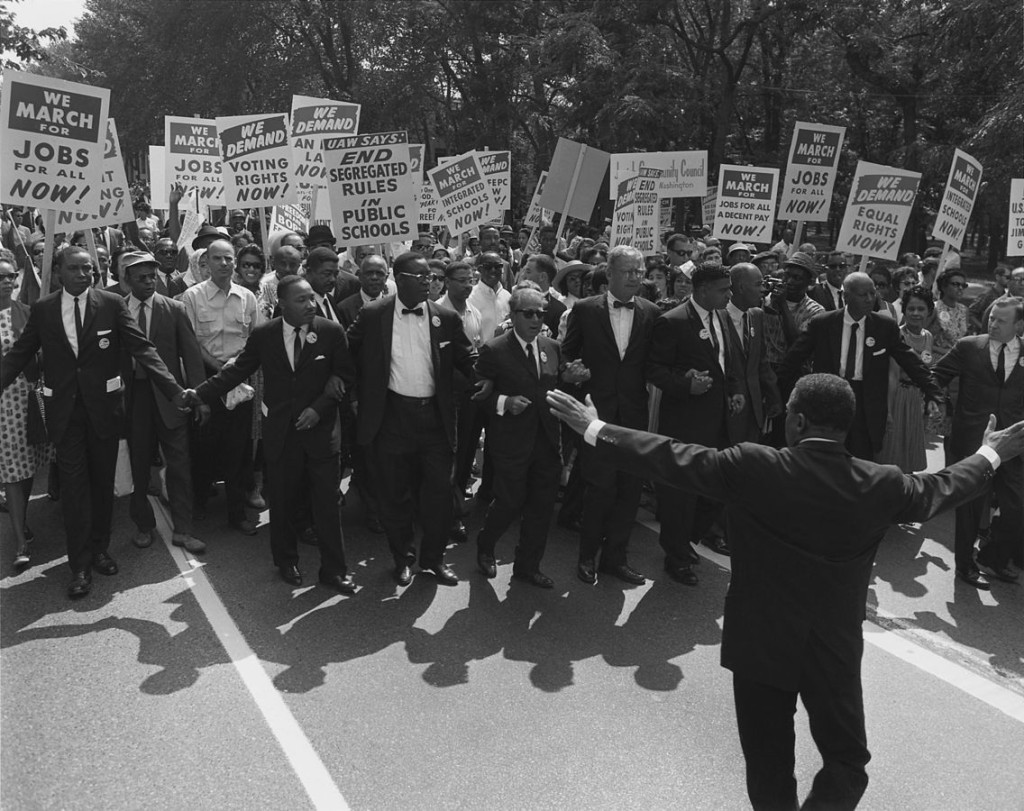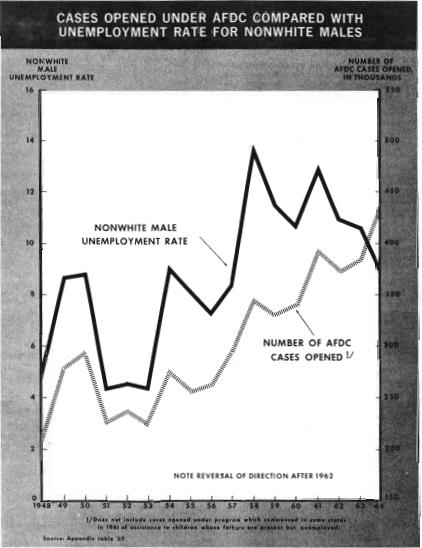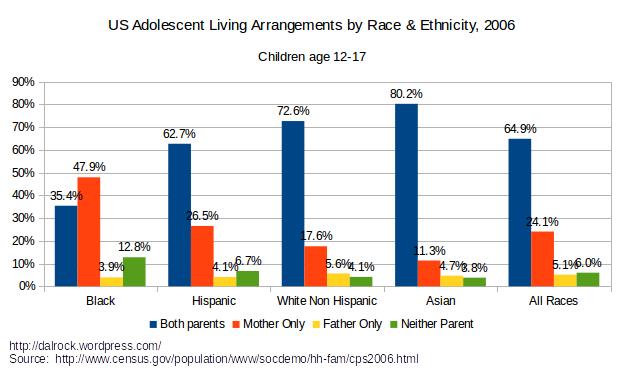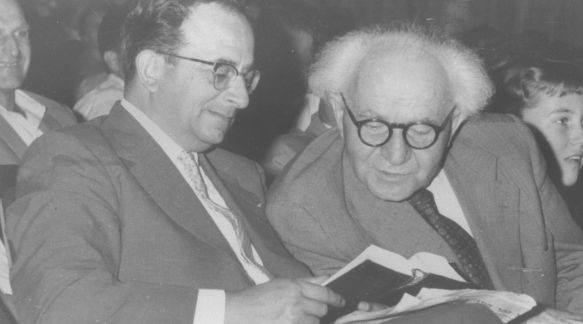The solution to Baltimore, and to the Black community in general, lies in recognizing the problem of the invisible and discarded Black man.
At least 70% of Black children do not reach age 18 with both parents in the home • Labor barriers, failing schools and a welfare state that destroyed marriage have all conspired to ruin most Black men and lead to the collapse of the Black family • Is there any hope for change?

"Baltimore is here!", shouted Israel's usual suspects on the media, watching the Ethiopian protests against police brutality. Seeing these events, they immediately thought of similar protests in Baltimore, where the local Black community rioted in reaction to the suspicious death of Freddie Gray while in police custody, the latest in a series of such events. One could show differences between the two even here, since while in Israel the offending cop was immediately dismissed, in America police unions make it almost impossible to do so.
But the differences go deeper than that, and the story of Baltimore is one of a large-scale social experiment which ended up greatly exacerbating the problems it tried to eradicate. The result is nothing less than a social catastrophe, from which Israel could learn a great deal.
Ostensibly, Baltimore should be the great dream of any left-winger as such, especially those concerned for struggling minorities. Baltimore is one of many cities throughout the United States which are effectively single-party fiefdoms-the Democratic Party, that is. The Republicans have not won a mayoral election since 1968, and there are cities where the memory of Republican rule is even more distant. The city's mayor, police chief and about half the police force are black.
Baltimore, then, is not Ferguson, with its clear-cut racial battle lines between a majority-Black citizenry and a white municipal government and police force. If we're going to understand the problems of Baltimore and of the Black community in general, we need to go beyond the automatic culprits of racism or police misconduct, legitimate though they sometimes are.
Moynihan's Bombshell
Let's go back to 1965. Democratic President Lyndon Johnson has pushed through the Civil Rights Act and the Voting Rights Act, effectively destroying the unjust legal segregation of blacks from political and civil life, especially in the South. The next step was Johnson's Great Society, which was aimed at eliminating the gaps between segments of society, especially between Blacks and Whites. Having eliminated the legal barriers to integration, Johnson now aimed to eliminate the socio-economic ones by government action.
But in that same year, a government report was published which still reverberates to this day, entitled The Negro Family: The Case for National Action. Known as the Moynihan Report for its author, Democratic leader Dr. Daniel Patrick Moynihan, the document argued that the condition of Blacks was a result of a complex web of causes. While openly, repeatedly and emphatically acknowledging the role of American chattel slavery, Jim Crow and racism in being a major cause of the same, Moynihan also argued that there were internal issues in the Black community as well which were holding it back.

Marriage and Class
The Moynihan Report's main conclusion was that the Black nuclear family was in serious trouble, and that if something weren't done soon, a crisis would become a catastrophe. Per the report, the Black community was being split into two classes: those who are married and those who are not. Those who married and remained so were generally those who succeeded in breaking through to the middle class and higher and even succeed in politics. Their odds of living in poverty were and are low.
By contrast, families where the couple had split up or not really been together in the first place were in terrible trouble. They were and are far more dependent on government largesse for survival, and as we will see below, the lack of the presence of a married biological father leads to serious psychological damage for children of both genders.
The relevant numbers in the Report are stark. In 1960, some 3% of White children were born out of wedlock. Among Blacks, the average was about 25% – eight times that of Whites. In some locations, that number comes closer to 40%. Even if we could somehow wave a magic wand and make all racism disappear overnight, these issues would remain in all their severity.
A Man is Measured By His Paycheck
As the report showed, the stability of a marriage was directly linked to the Black man's ability to earn a living and bring money home. As the graph below demonstrates, marital stability rose and fell almost entirely on the rate of Black male employment.

What the report fails to mention is how labor laws meant to "help" the working man, such as the Davis-Bacon act which fixed wages for Federal contracts to (largely White) union rates and laws such as Social Security payments ended up exacerbating the Black unemployment problem it mentions.
The possibility of getting a low-paying job is a critical leg up for people with low skills and who are underserved by failing schools (more on this below). This is especially true the more there is economic competition between businesses, wherein greed and necessity force unsympathetic and even racist employers to hire new and untested workers, including from among minorities.
Every law which "improves" the worker's condition by fiat-be it the minimum wage, Social Security or otherwise-makes the employer become more and more hesitant to "take a chance" on the new guys-and they are almost always guys. The laws may help some of those who are already employed, but it dooms the remainder to chronic and sometimes permanent unemployment.
Matriarchal Black Society

The emphasis we've placed on the Black man is not coincidental. Indeed, when discussing the damage caused by slavery, racism and Jim Crow, the Moynihan Report emphasizes how the Black man was harmed and brought down more than the Black woman. The result is that already in 1960, Black women had an increasingly dominant and dominating position within the majority of Black families, benefiting more from government programs and schools.
Within the Black family, Black men became more and more dependent on Black women both economically and socially, to the point where he became almost disposable, and certainly without real authority or influence. Quotes of selected authors on the subject within the report are highly illuminating:
"Whereas the majority of white families are equalitarian, the largest percentage of Negro families are dominated by the wife."
"The Negro wife…can easily become disgusted with her financially dependent husband, and her rejection of him further alienates the male from family life. Embittered by their experiences with men, many Negro mothers often act to perpetuate the mother-centered pattern by taking a greater interest in their daughters than their sons."
"Historically, in the matriarchal Negro society, mothers made sure that if one of their children had a chance for higher education, the daughter was the one to pursue it."
The feminist dream of a society dominated by women-a matriarchy-came to be in Black society long before the "second wave" took off. Cherished fathers and men are now a rare commodity, and the result is a hostile "war of the sexes" in which everyone loses.
Black men are now effectively divided into a small slice of extremely successful men-celebrities, politicians and solid family men-and a very broad base of men who are so far behind that they are effectively "invisible", even within Black society itself.
Mumia Ali, a regular commenter on Black Men's affairs from the perspective of these "invisible men", has pointed in this context to the "Tyrone" phenomenon. Tyrone is a genuinely good guy, who makes a good living in a blue-collar job and either doesn't have a record or has left his wild days far behind him. But because he doesn't make enough, isn't "educated enough" or doesn't look like a model, he is entirely ignored by Black women. There are many, many Tyrones, who once upon a time might have been considered for marriage, but today are not even on the radar.
Children Need Their Married Biological Father
It's impossible to underestimate just how much damage is done to children by replacing the married couple with their biological children with a single-mother household. Fathers are very important for daughters-girls with a married father at home are far less likely to have children out of wedlock or engage in reckless and risky sexual behavior than with only a mother-but fathers are even more important for sons.
Without a father, even just an average father, to serve as a male role model for his sons, boys fall behind. They fail more in school (the Moynihan Report statistics on this are a depressing read), become more impulsive and violent (and the rarely-mentioned domestic violence in single-mother homes likely doesn't help) and in general feel greatly alienated from society in general. When one considers just how little they're valued by everyone, it's not hard to see why.
A great demonstration of this innate need for male mentorship can be found in another part of the report which indicates that the self-image of Black men who enlisted in the US Army greatly improved. Why? Because it was an unapologetically male framework which valued masculinity as such. A slogan from the US Army at the time got this point across well: "In the U.S. Army you get to know what it means to feel like a man."
Indeed.
Good Intentions and Catastrophic Results
When the Moynihan Report came out, the Black family was in trouble but had not yet collapsed. Even if far less stable than white families, there was still hope here. But the welfare state took a crisis and made it into a catastrophe. Increasingly rigid labor and minimum wage laws made young Black male unemployment shoot up. Overbearing tax policies drove out those businesses that still remained after the race riots of the late 1960s. A huge increase in welfare programs made men less and less necessary for families to stay financially afloat, albeit barely.
And what of schools, the main chance for Blacks and especially Black boys to gain the skills to get ahead? Democratic support for teachers' unions means that terrible teachers can almost never be fired and families cannot force schools to compete for children and improve, either through a charter or voucher system. The results in Baltimore are telling: 72% of eighth graders score below proficiency in math, 45% in reading and 64% in science. It's a safe bet that a gender breakdown would be even starker.
When Moynihan published his report, only 25% of Black children were not born and raised in a two-parent home. Today that number is at least 70% and perhaps more. Unemployment, crime, violence is rife and even rising in many an inner city Black community. And the homogeneous nature of such neighborhoods, without any middle class within walking distance to aspire to, it takes a particularly intrepid and brave person to overcome his condition and not simply give up.

In a horrific irony, the only business with fairly open employment practices and prospects is the drug trade. As Black scholar Orlando Patterson recently stated in a lecture at the American Enterprise Institute, drug gangs also provide something else which everyone who joins a gang mentions: family. I might add: male family.
Can the Pendulum Be Swung Back?
Is there any hope for Baltimore or the inner-city Black population in general?
The Baltimore GOP believes so. Yes, "with a voter registration of nearly 11 Democrats for every 1 Republican, it's an uphill battle for conservatives," the City GOP informed me. "People in cities vote Democrat because they think it's in their best interest based on their belief in welfare programs — free or subsidized housing, food stamps, free child care, free medical care, subsidized public transit."
However, "Telling blacks the history of the Republican Party's efforts toward black freedom often opens minds to how government programs are keeping poor people enslaved while more freedom enables poor people to climb out of poverty." Also,
The national party, called the Republican National Committee, provides funding to the state Republican Party, which has not provided much funding to the City Republican Party, but that isn't because the GOP does not believe in Baltimore or in inner cities. It's because the Baltimore City GOP has not been as active as it could have been, in part because an 11:1 Dem:Rep ratio makes it hard to motivate even Republicans to work toward change.
Sometimes money is not the answer: being seen in poor or black neighborhoods and at events sponsored by groups that don't historically vote Republican is very important because the Democrats only visit black neighborhoods during an election. Blacks know this, and rightfully resent it, making them ripe for a change of mind and heart. A Republican presence in the lives of poor people and of constituencies that are not known to vote Republican is very important. We try to be at their picnics, churches, and community centers, and that is when our presence means a lot more than money we might spend on trying to win them over. Breaking bread is a universal way to start a conversation.
Of course, it's still hard to see how Blacks, who vote almost entirely for Democrats, will change their political allegiance, but there are some signs this may begin to change. Yes, almost 95% of Black women vote Democrat, but some are vocally supporting Republicans like Rand Paul who directly engage the Black community. Even more importantly, an increasing number of young Black men, the populace you'd think would be most suspicious of right-wingers, are voting GOP. The GOP is often bashed as a "male party", maybe it's time they lived up to that for Black men.
It's hard not to watch events in Baltimore and shake one's head in despair. Many of my conservative colleagues are pretty openly waving the white flag. But none of us are prophets, and steps like greatly increasing educational competition, eliminating restrictive labor and business laws, and most importantly-returning both fathers and men in general to a respected and indispensable place in society alongside Black women and mothers-can go a long way.
There are no guarantees, of course. But the Democratic Party has tried its solutions for decades and completely failed. For Blacks and minorities in general, it's time to try something else.
English translation by Avi Woolf.
To receive updates on new articles in English, join Mida on Facebook or Twitter or join our mailing list.





